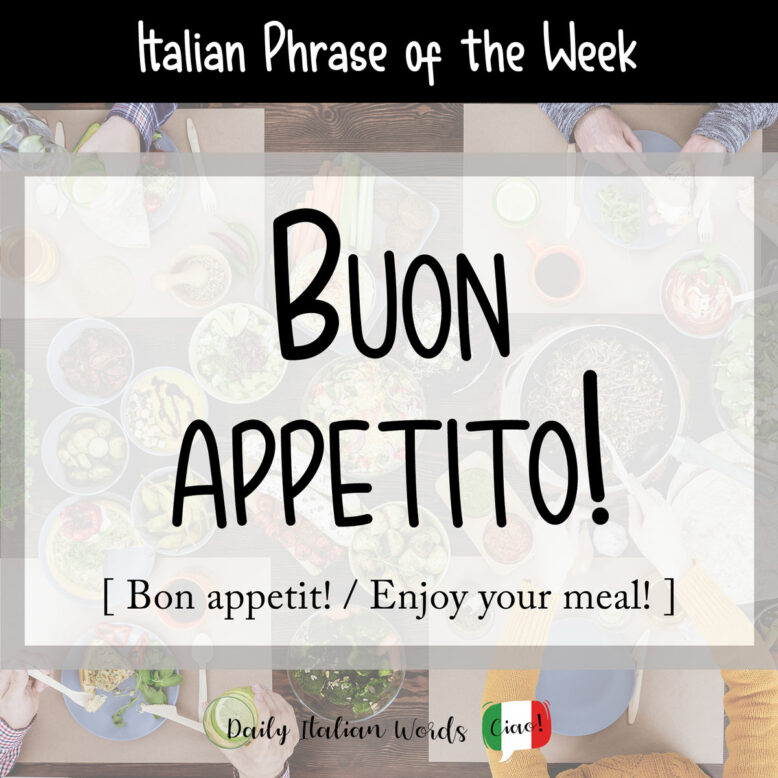When I was working as an au pair for an Italian family in Turin, the three children I looked after would begin every meal with a cheerful chorus of Buon appetito! (Bon appetit! / Enjoy your meal!), an expression many Italians say before eating.

The proper response to this expression is grazie, altrettanto (thanks, likewise) or grazie, anche a te / voi (thanks, and to you or you too).
La cena è servita! Buon appetito! – Grazie, altrettanto!
Dinner is served! Enjoy your meal! – Thanks, you too!

Buon appetito is the precise equivalent of the well-known French expression bon appétit which we’ve borrowed into English.
This phrase, which literally translates as good appetite, has been in use as far back as the Middle Ages. During times of bountiful harvest or special occasions such as weddings, servants would be invited to partake in the feast by high-ranking officials who would wish them buon appetito before eating.
When economic conditions improved in the subsequent centuries, buon appetito transformed from an invitation to the poor into a general exclamation of gratitude.

Fast forward to today, and you are either in the buon appetito camp, or you aren’t.
I’ve met many Italians who would not begin their meal without saying this expression. Yet there is a growing segment of the population that feels the phrase is outdated, even uncouth, as it harks back to a time of class division. Some specifically dislike the word appetito for its association with gluttony. In high class society, many prefer more formal expressions such as prego (please).
No matter where you stand, there is no question that buon appetito is still very much in use across Italy. Waiters say it with a gleeful smile as they serve you your meal. Children say it to their parents. Hosts say it to their guests. It is not uncommon to say it between friends either if you all go out for a pizza one night. My husband has said it pretty much all his life as a way of showing gratitude. In short, the tradition varies from family to family, as well as region to region.
Whether a complete cultural shift away from this expression will happen within my lifetime has yet to be seen! 🙂
To conclude, here is a fun expression for the kids if they too are learning Italian:
Buon appetito, piatto pulito!
Good appetite, clean plate!

Source: La Gazzetta Italiana
Heather Broster is a graduate with honours in linguistics from the University of Western Ontario. She is an aspiring polyglot, proficient in English and Italian, as well as Japanese, Welsh, and French to varying degrees of fluency. Originally from Toronto, Heather has resided in various countries, notably Italy for a period of six years. Her primary focus lies in the fields of language acquisition, education, and bilingual instruction.


